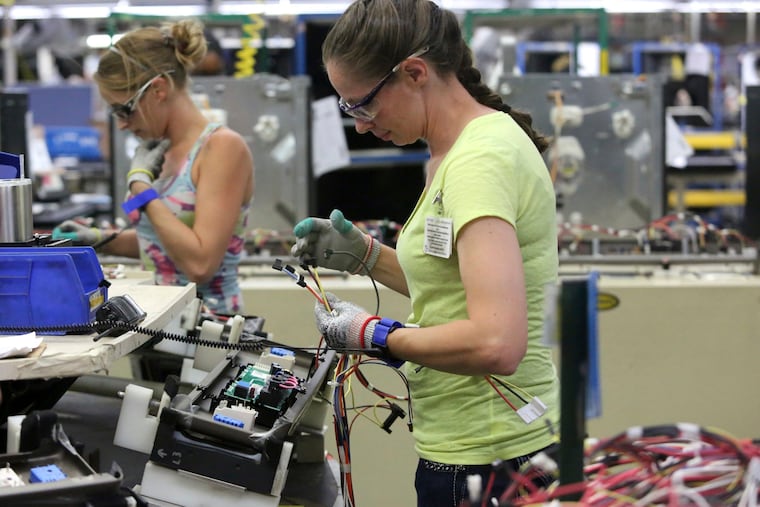Need a new appliance? Here’s how to find cheap and high quality sellers of ranges, fridges, and dryers in the Philly area.
Delivery and installation are the most problematic parts of many appliance transactions, reviews from local purchasers indicate.

Appliances used to last for decades. But changing trends and features along with shorter appliance life spans mean you’ll probably need to replace at least one or two dishwashers, ranges, refrigerators, and dryers in your lifetime.
When it’s time to purchases new appliances, you want sound advice, careful and prompt delivery, and a trouble-free installation — all at a reasonable price. Unlike buying most other big-ticket items, a lot can go wrong with appliance purchases. If your new tablet doesn’t work, you can just return it and get a replacement. But you can’t easily tote your new defective refrigerator back to the store, plus most consumers need help with delivery and installation.
Unfortunately, Delaware Valley Consumers’ Checkbook magazine and Checkbook.org receive many reviews from local appliance purchasers that indicate delivery and installation are the most problematic parts of many transactions.
Delivery crews can damage floors and doorways, and workers can cause water damage and even floods by improperly installing dishwashers and clothes washers. Mistakes in the installation of gas appliances are nerve-wracking. To help you separate the good stores from the not-so-good ones, through a special arrangement, Inquirer readers can access Checkbook’s ratings of local appliance stores for free until Dec. 10 at Checkbook.org/Inquirer/Buying-Appliances.
Another major consideration: price. Checkbook’s undercover price shoppers found the highest price quoted by local retailers for a Maytag MFI2570FEZ refrigerator in stainless steel was $2,209; the lowest price was $1,530—a $679 difference.
For a Samsung WA50M7450AW clothes washer in white, prices ranged from $639 to $1,043, a difference of $404.
Fortunately, Checkbook finds that highly rated stores often quote prices as low as, or even lower than, their low-rated competitors. Also, Checkbook’s research shows that most stores use fake sale prices to mislead their customers into believing they’re getting special deals when, in fact, appliances are on constant sale and at most stores, buyers are paying too much.
The only way to be sure you’re getting a good deal is to shop around. Because manufacturers enforce minimum advertised pricing policies designed to squelch price competition, if you rely just on stores’ ads or websites you’ll find the same prices from store to store for most models.
But Checkbook’s researchers found that if they called or emailed stores and mentioned they were collecting prices from several outlets for the models they were considering, they were often steep discounts to earn their business.
At independent stores, Checkbook’s shoppers found that informing sales staff that they were getting price quotes from multiple stores often spurred discounts, waivers of delivery and installation fees, or both.
Getting big chains to be flexible took considerably more effort, but if Checkbook’s researchers waited and waited on hold to speak with appliance-department sales managers, they sometimes secured better deals. Call four or five retailers and ask to speak to someone with authority to provide discounted pricing. Tell that person the makes and model numbers of the appliances you want, explain that you are calling multiple companies to solicit bids, make it clear that you will ask each store only once for its best price — and will buy from the store that offers the best deal.
Don’t be shy about using this method. Be polite, businesslike, and let stores know that you get competitive bids whenever you make major purchases. Most appliance salespeople are accustomed to providing discounted pricing when asked.
Start by deciding on the models you wish to buy. There are a few excellent sources that provide independent buying advice. Consumer Reports regularly evaluates appliances on a range of quality issues, including reliability, and offers sage advice on the pros and cons of configurations, designs, features, and options.
The U.S. Department of Energy’s Energy Star program provides lists and energy-usage data on certified appliances. Salespeople can also be fantastic sources of buying advice — but only at stores that employ knowledgeable, helpful staff.
If you need delivery and installation services, nail down prices for that work along with prices for the appliances. Be aware that some companies won’t install dishwashers, and others won’t connect appliances to gas lines.
Some delivery personnel won’t do anything but move appliances into place and plug them in.
If you buy from a store that doesn’t provide full installation services, and you aren’t comfortable with doing it yourself, you’ll have to hire a plumber or appliance repair service. Most reasonably priced plumbers charge about $100 to $150 to hook up clothes washers, gas stoves, or dishwashers. When comparing appliance prices, take these expenses into account.
It’s reasonable for a store to require a small upfront deposit. But making a large deposit deprives you of the leverage you may need to make sure all goes as planned. Whenever possible, pay by credit card. If you have a problem, you can protest the charge with your credit card issuer.
_______________________
Delaware Valley Consumers’ Checkbook magazine and Checkbook.org is a nonprofit with a mission to help consumers get the best service and lowest prices. It is supported by consumers and takes no money from the service providers we evaluate.